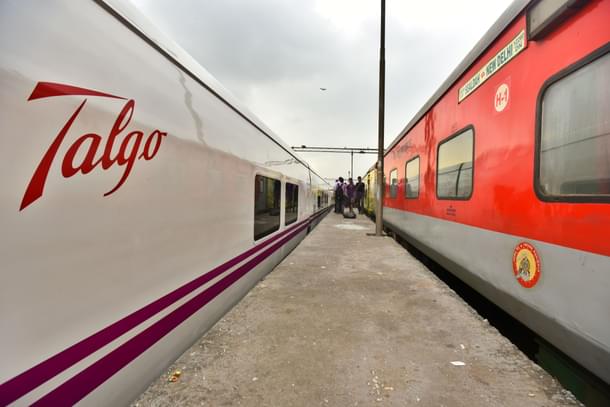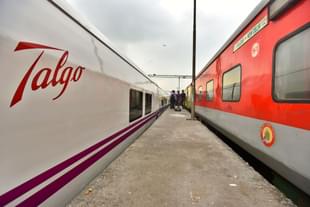News Brief
Private Train Project: 'Request For Qualification' Timeline Extended By A Month To 8 October
Arun Kumar Das
Aug 26, 2020, 12:14 PM | Updated 12:13 PM IST
Save & read from anywhere!
Bookmark stories for easy access on any device or the Swarajya app.


Indian Railways has extended the September 8 timeline for opening the 'Request For Qualification' in private train operation project as many firms keen to run passenger services have sought more time to study minute details of the bidding documents before entering the race.
With a total of 23 firms including Alstom, Siemens and L&T Infrastructure showing interest in the Rs 30,000-crore private train operation initiative, the project has created a buzz in the market.
However, since it is a first-of-its-kind project in the rail sector, private players are still in the process of grasping the finer points of the ambitious project, with many queries relating to different crucial aspects of running trains.
The Railways on 1 July began the formal process of allowing private trains on 109 routes — a process that aims to open up the rail sector, which until now was a monopoly of the government.
The due date for opening of RFQ was 8 September 2020.
"We have extended the date for opening of RFQ for a month. Now it will open on 8 October. We hope that all firms interested in the bidding would have enough time to do the needful," said a senior Railway Ministry official aware of the development.
Though Railways has answered many queries on its second pre-bid meeting, vendors feel that some issues crucial for train operation still need detailed study.
There are queries on RDSO specifications relating to type of rolling stocks, maintenance schedule and choosing the right partner by many rolling stock firms for the train operation.
In the second pre-bid meeting, Railways has given details on the various issues ranging from flexibility in clusters, eligibility criteria, bidding process, procurement of trains, fares, operations and maintenance.
According to the specifications, the private train will be equipped with state-of-the-art technology, offering maximum riding comfort and the latest amenities onboard.
Apart from a maximum speed of up to 180 kmph, the modern train set will be equipped with speed-indicating recording equipment, train control management system, loco pilot display and train data recorder.
Giving priority to safety and security of passengers, the entire train will be fitted out with CCTV cameras for surveillance, fire retardants and passenger information system.
Railways has maintained that private players will be given full freedom to decide the fare for the passengers and will be given the option of either purchasing the trains or leasing them in terms of procurement.
Bombardier, Medha, BEML, BHEL, Bharat Forge, IRCTC, CAF, Gateway Rail, GMR, Hind Rectifiers Limited, JKB Infrastructure, Megha Engineering, National Investment and Infrastructure Fund, PSGG Technologies, RK Associates, Sterlite Power and Titagarh Wagons are among 23 firms which participated in the meeting.
The private players will be selected through a two-stage competitive bidding process comprising request for qualification (RFQ) and request for proposal (RFP).
The Railway Ministry has also shared traffic data, draft concession agreement, draft feasibility report and draft manual for standards and specifications of trains.
The Railways plans to run the trains along 12 clusters across the Indian rail network.
It has planned two clusters each in Delhi and Mumbai, and one cluster each in Secunderabad, Chennai, Howrah, Jaipur, Prayagraj, Chandigarh, Bengaluru and Patna.
The Railways plans to introduce private trains on its network in phases, with the first dozen due to start running in the 2023-24 financial year and all 151 by 2027.
According to the Ministry’s projections, the transporter will select the companies that will run the private trains by April 2021; the first 12 are expected to start plying by 2023-24, followed by 45 more in 2024-25, the next 50 in 2025-26 and the last 44 by 2026-27.
Arun Kumar Das is a senior journalist covering railways. He can be contacted at akdas2005@gmail.com.





